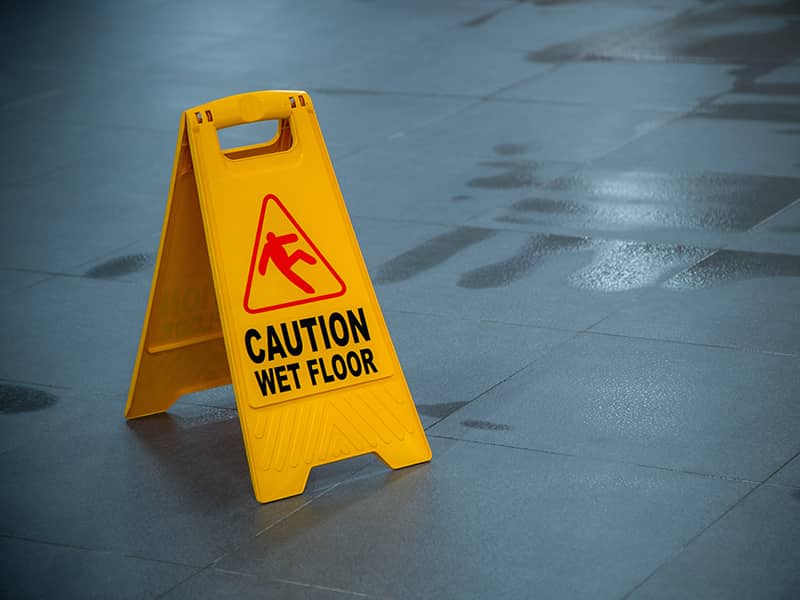
Slip and fall accidents on private property are common occurrences, and they can happen to anyone. While some of these accidents are unavoidable, many can be prevented if businesses take the necessary measures to maintain a safe environment for their customers and employees.
If you’ve been injured in a slip and fall on private property or are a business looking to prevent personal injury lawsuits, you’re not alone.
We’ll discuss some ways businesses fail to prevent slip and fall accidents, how to avoid them, and how a San Diego slip and fall lawyer can help.
Slip and fall accidents can happen anywhere, but they are particularly common on private property. From shopping malls to grocery stores, businesses are responsible for maintaining a safe environment for their customers and employees.
Unfortunately, many businesses fail to take precautions to prevent slip and fall accidents. These accidents can result in serious injuries and even wrongful death.
One of the most common reasons for slip and fall accidents is a failure to maintain proper flooring. This can include cracked or uneven flooring, loose tiles, and carpets that are not properly secured.
If a business owner fails to repair or replace damaged flooring, they are putting their customers and employees at risk.
Another common cause of slip and fall accidents is wearing improper shoes. Sometimes, businesses may require employees to wear certain types of footwear but fail to provide them with the appropriate shoes or boots.
This can be particularly dangerous in industries such as construction or hospitality, where workers are often exposed to slippery surfaces.
When an employee gets injured, a workers compensation lawyer may get involved.
Poor lighting can also contribute to slip and fall accidents. When a business fails to provide adequate lighting, it can be difficult for customers and employees to see potential hazards, such as wet floors or uneven surfaces.
This is particularly true in parking lots, where poor lighting can make it difficult to see cracks or other hazards in the pavement.
Businesses are responsible for maintaining sidewalks and walkways on their property. This includes repairing cracks or uneven surfaces and ensuring they are clear of debris and other hazards. Naturally, failing to maintain sidewalks and walkways can result in slip and fall accidents and possible legal actions against the business.
Wet floors are some of the most common causes of slip and fall accidents. Spills that aren’t cleaned up quickly can leave the walking surface slippery and lead to dangerous situations. Businesses should plan to address these hazards fast by placing warning signs in the area and immediately cleaning up any spills or wet floors.
Cords, uneven flooring, and other tripping hazards can also contribute to slip and fall accidents. Businesses should take steps to address these hazards, such as using cord covers and repairing any uneven surfaces.
Handrails can be a valuable tool in preventing slip and fall accidents, particularly on stairways or ramps. Businesses should ensure that handrails are properly installed and maintained and easily accessible to customers and employees.
Businesses should always warn customers and employees of existing hazards that could lead to slip and fall accidents. This can include placing warning signs where accidents are likely to occur, such as near wet floors or uneven surfaces.
Slip and fall accidents can have serious consequences, and businesses are responsible for taking steps to prevent them. By maintaining proper flooring, providing proper footwear, and addressing hazards such as poor lighting and wet floors, businesses can create a safe environment for their customers and employees.
If you’ve been hurt in a slip and fall accident or if you’re a business facing a personal injury lawsuit after a fall incident, don’t walk the legal road alone. A San Diego personal injury lawyer can help ensure you’re treated fairly.
Contact us today at DP Injury Lawyers, and we’ll review your slip and fall case to ensure your rights are protected.